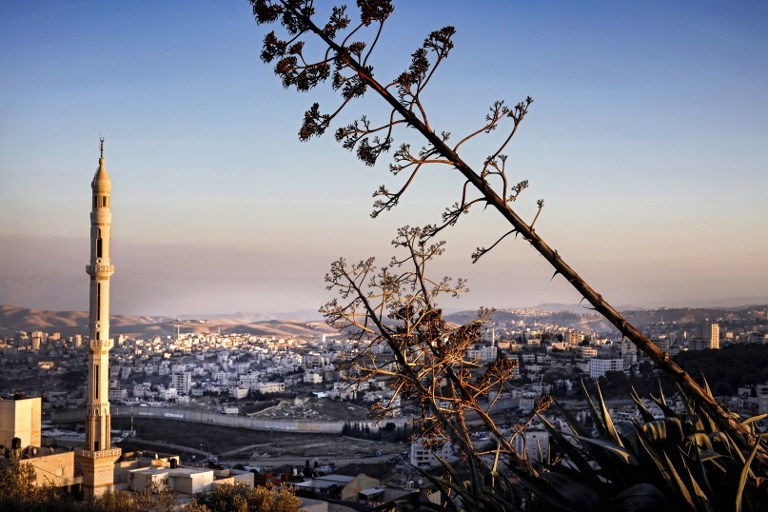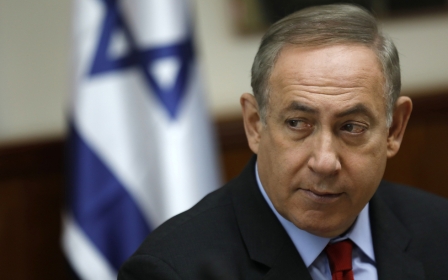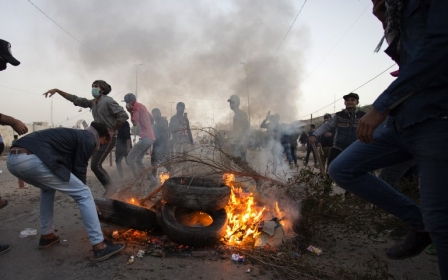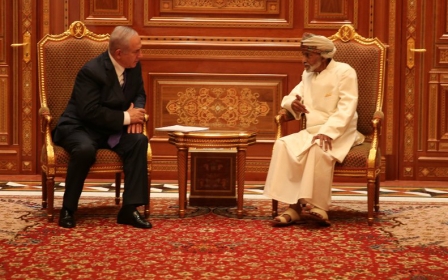Alleged visits to Israel by Iraqi officials sparks controversy

Visits by Iraqi officials to Israel announced by official Israeli media stirred controversy on Monday in Iraq, where the deputy parliamentary speaker demanded a probe to identify those who crossed a "red line".
Israel's foreign ministry said on Twitter on Sunday that three Iraqi delegations visited Israel in 2018, with further details also later released by media.
Baghdad does not recognise Israel, with which it is technically in a state of war.
First Deputy Speaker of Parliament Hassan Karim al-Kaabi called in a statement for "an investigation... to identify those who went to the occupied territory, particularly if they are lawmakers".
"To go to the occupied territory is a red line and an extremely sensitive issue for all Muslims", the statement said.
Kaabi is close to cleric Muqtada al-Sadr, whose bloc won the largest number of seats in Iraq's legislative election last year.
Israel's foreign ministry said on Twitter that the 15 Iraqi visitors were "influential Shiite and Sunni personalities in the country", but did not give names.
Edy Cohen, an academic at the Begin-Sadat Centre in Israel, tweeted that the delegation included politician Ahmed al-Jubouri, as well as a number of MPs mainly from Kirkuk and Nineveh provinces.
However, this was strenuously denied by Jubouri on his Twitter account, who said he would not "not set foot on (Palestinian) soil" until "we are conquerors and liberators" of Palestine.
The ministry said the Iraqis had visited "Israeli officials and universities", as well as the Holocaust memorial in Jerusalem.
A spokesman for the memorial told AFP that "a group of 10 Iraqis" had "undertaken a guided tour in late December".
He said he was not able to give details on the identity and roles of the Iraqis.
Private Israeli TV station Hadashot, which described the Iraqis as "local leaders", said Sunday that they had stressed they were not taking part in an official visit and that secrecy was paramount.
Past controversies
The controversy comes hot on the heels of comments by Iraq's foreign minister, Mohammed Ali al-Hakim, in which he said that Iraq supported a "two-state solution" to the Israel-Palestine conflict, thereby implicitly recognising Israel.
A significant Iraqi Jewish community lives in Israel and regularly calls for a normalisation of ties between Baghdad and Tel Aviv.
But the question remains sensitive, and Israel's support for an independence referendum in Iraqi Kurdistan in late 2017 provoked Iraqi officials' ire.
Israel was the only country to back the vote, which Baghdad deemed illegal.
In 2017, a former Miss Iraq sparked a storm when she took a selfie with Miss Israel.
Following the incident, Sarah Idan said she had to flee the country as a result of death threats.
New MEE newsletter: Jerusalem Dispatch
Sign up to get the latest insights and analysis on Israel-Palestine, alongside Turkey Unpacked and other MEE newsletters
Middle East Eye delivers independent and unrivalled coverage and analysis of the Middle East, North Africa and beyond. To learn more about republishing this content and the associated fees, please fill out this form. More about MEE can be found here.




